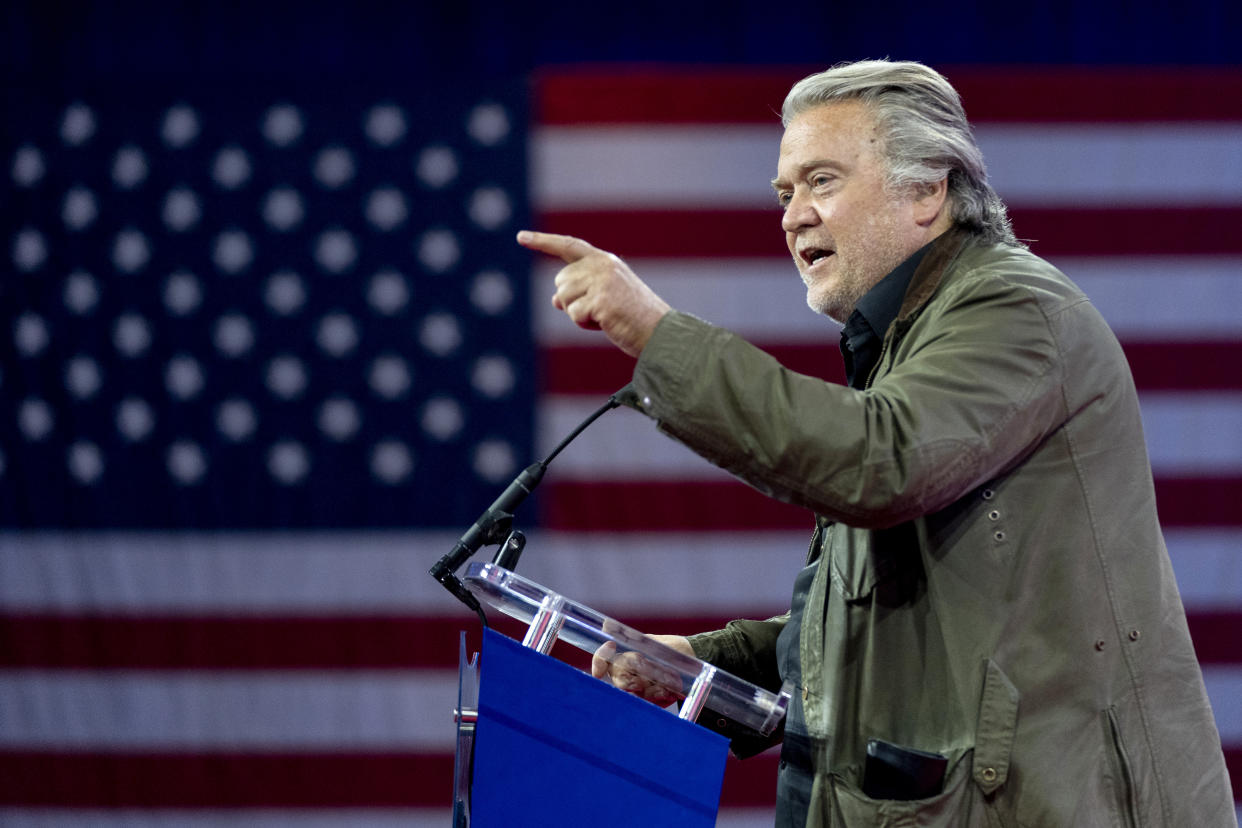Steve Bannon to report to prison Monday after Supreme Court declines to give him a reprieve

- Oops!Something went wrong.Please try again later.
- Oops!Something went wrong.Please try again later.
- Oops!Something went wrong.Please try again later.
Steve Bannon is going to prison.
The Supreme Court on Friday rejected a last-ditch bid by the longtime Donald Trump ally to stave off a four-month sentence for defying subpoenas from the Jan. 6 select committee three years ago.
The high court’s decision — a one-sentence denial without explanation — means the influential right-wing podcaster will head to prison on July 1, with his release date just days before the November 2024 election.
Bannon had sought an emergency order from Chief Justice John Roberts, who handles such requests if they originate in Washington, D.C. Roberts referred the request to the full court, which rejected it without any public dissents.
Bannon will become the second former Trump aide to serve prison time for blowing off a subpoena from the House panel, established by then-Speaker Nancy Pelosi to investigate Trump’s bid to subvert the 2020 election and the pro-Trump riot that threatened Congress on Jan. 6, 2021. Peter Navarro is nearing the end of his own four-month sentence in a federal prison in Miami.
The court’s decision came despite last-minute efforts by congressional Republicans — including Speaker Mike Johnson — to intervene on Bannon’s behalf. Johnson and other House GOP leaders agreed Tuesday to submit a legal brief supporting Bannon’s bid to overturn his criminal conviction. And Rep. Barry Loudermilk (R-Ga.) submitted his own brief to the Supreme Court on Wednesday afternoon.
Bannon had argued that his decision to blow off the Jan. 6 committee’s subpoena was rooted in the advice of his lawyer at the time, Robert Costello, as well as a belief that Trump wanted him to assert executive privilege. However, the Jan. 6 committee repeatedly warned Bannon that most of the topics it intended to query him about were not related to his conversations with Trump and therefore could not be privileged. They urged him to submit a list of documents he believed were privileged and to appear for a deposition to answer questions on topics that were unquestionably unprivileged. Bannon refused to do either.
The panel intended to query Bannon about his efforts, along with Navarro, to strategize with Republican members of Congress to challenge the election results on Jan. 6. They also wanted to ask him about comments he made on his “War Room” podcast the day before the riot, warning that “all hell was going to break loose” on Jan. 6.
The House held Bannon in contempt for his defiance in October 2021, and the Justice Department indicted him several weeks later. A jury convicted Bannon of the two misdemeanor charges the following July, but the judge in his trial agreed to permit Bannon to remain out of prison while he pursued his appeal, agreeing that the appellate courts might want to reconsider some of the standards for contempt of Congress charges.
But the D.C. Circuit Court of Appeals roundly rejected Bannon’s appeal, so Judge Carl Nichols opted last month to rescind Bannon’s release, ordering him to prison on July 1 unless the appeals court or Supreme Court intervened.
Bannon recently got an extension from the appeals court allowing him to ask for the court’s full bench to take up his appeal. But the Supreme Court’s action Friday means Bannon will be in prison before the appeals court decides that request. He could also ask the Supreme Court to review his conviction and sentence, but he will likely have completed his prison term before that petition would be acted on by the justices.

